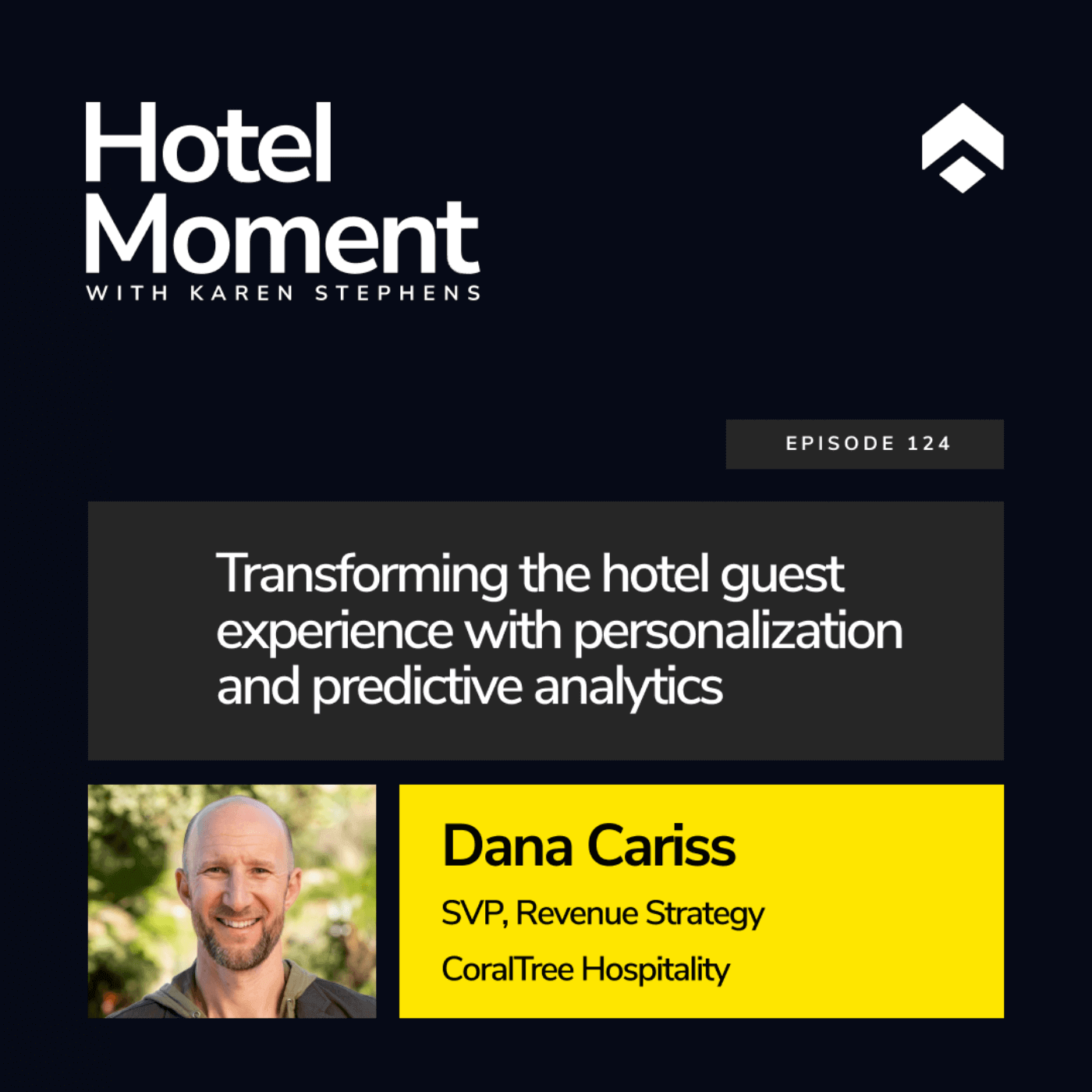The Revination
September 2025
Explore Revinate’s monthly digest of hospitality’s latest insights and tips. As hoteliers, we know you’re flooded with information. The Revination simplifies that noise, making it easier for you to focus on what’s happening in hospitality, why it matters, and what action you can take today. We also share our perspective on industry trends and highlighting the strategies driving game-changing results for hotels like yours. Subscribe on LinkedIn.
Make segmentation your marketing advantage
Today’ s travelers have endless options — and that makes relevance your strongest competitive advantage. Every booking, preference, and interaction is data you can use to personalize your messaging. And when your communications reflect what matters most to your guests, you earn loyalty and repeat direct bookings — making segmentation a non-negotiable priority.
With AI-powered segmentation, you can cut through the noise of OTAs and competitors by delivering timely, specific offers at scale to your most profitable guests. Because segmentation isn’t just a tool: It’s how you transform one-time visitors into long-term loyal guests.
Numbers that matter
The growing value of the leisure guest
Post-pandemic recovery has picked up momentum from leisure travelers, making up 60% of all global hotel bookings — with rising disposable incomes contributing to travel growth in many parts of the world. Both independent and medium to large-scale hoteliers are left to decide how to target the leisure segment while navigating the world of AI, chatbots, and mobile check-in to meet the expectations of the industry’s most active travelers. Hoteliers are also facing lingering challenges from the global staffing shortage and increased operational costs from rising interest rates — making it critical to identify lucrative guest segments to make up for additional costs.

Why it matters for hoteliers
Traditionally, leisure guests have been viewed as slightly unpredictable — booking shorter last-minute trips — and less lucrative than group or business travelers. But that’s changed since the COVID-19 pandemic, with the rise of “bleisure,” blending business and leisure with more travel spending. But bleisure guests or not, hoteliers need to start treating leisure guests as a segment primed for growth.
Leisure travelers are often the first to pay more for hotel experiences, wellness offerings, and unique stays — making them great recruits for your loyalty program. (They’ll likely take advantage of personalized on-property rewards!)
With leisure guests booking over half of all worldwide hotel stays right now, this is your opportunity to capitalize on the revenue diversification this segment brings. Whether you’re a non-urban or a resort hotelier, you’re in a position to drive up your ancillary revenue with valuable upsells for these guests. Think F&B deals, spa experiences, golf packages, and anything else you can use to elevate their experience and extend their stay.
What’s Revinate’s take?
Even if your marketing mix isn’t predominantly focused on leisure guests, take a look at your database today. Leisure guests could be the ancillary revenue boost your bottom line needs.
Building behavior-based leisure segments from booking habits, amenity usage, loyalty tier, communication preferences, or spending patterns puts your data to work — making sure you’re sending the right messages to your leisure guests.
Have your reservation and marketing teams collaborate to nurture your leisure segments. With reservation agents collecting call data about spa inquiries, for example, for guests looking to book a vacation, your marketing team can get to work on building an email campaign that encourages those guests to book and take advantage of those services. Use all your guest touchpoints and channels to work together.
Trends that matter
Guests are booking shorter stays, later than ever
More and more travellers are booking on a whim. Instead of locking in a week-long holiday months in advance, they’re grabbing quick getaways just days or weeks before arrival. In fact, over half of North American hotel searches now happen within 28 days of travel, and one-night stays are at a three-year high.

Why it matters for hoteliers
This isn’t just a phase, it’s a new habit. People want flexibility, value, and experiences they can book right now. For hotels, that means your marketing can’t be built only around fixed campaigns or seasonal deals. You’ve got to show up with the right offer, at the right time, for the right guest.
Here’s how to do it:
- Segment by booking behavior. Group guests by lead time and stay length so your offers feel perfectly timed and relevant.
- Personalise your offers. A one-night business traveler may need late checkout and breakfast; a two-night couple might want spa and dinner packages; a three-night family might look for loyalty perks or discounts.
- Use real-time triggers. With shorter lead times, automated campaigns (email, SMS, paid ads) ensure you’re in front of potential guests exactly when they’re ready to book.
- Lean on local markets. Regional travellers are your fastest-converting segment. Geo-targeted ads and emails help you catch them while they’re still deciding. Need inspiration? See how Lake Powell Resort is targeting drive markets.
Track value cues. Monitor your reviews and survey data to understand what travellers say matters most, then make sure your website and OTA listings echo that language.
What’s Revinate’s take?
We’re seeing a new kind of guest behavior: flexible, value-driven, and highly spontaneous. Hotels that succeed are the ones segmenting intelligently, personalising offers, and responding in real time. Revinate helps hoteliers unify guest data and automate campaigns so you’re always in sync with today’s booking patterns turning compressed booking windows into direct-booking wins.
Perspectives that matter

The days of hotels blasting out the same email to their entire database and hoping for a great response are long gone. Instead, email segmentation has become key for hoteliers looking to drive direct revenue.

Tune in and discover the gaps in your revenue strategy to take a proactive approach to the hotel guest experience and tracking guest spend across your portfolio.


